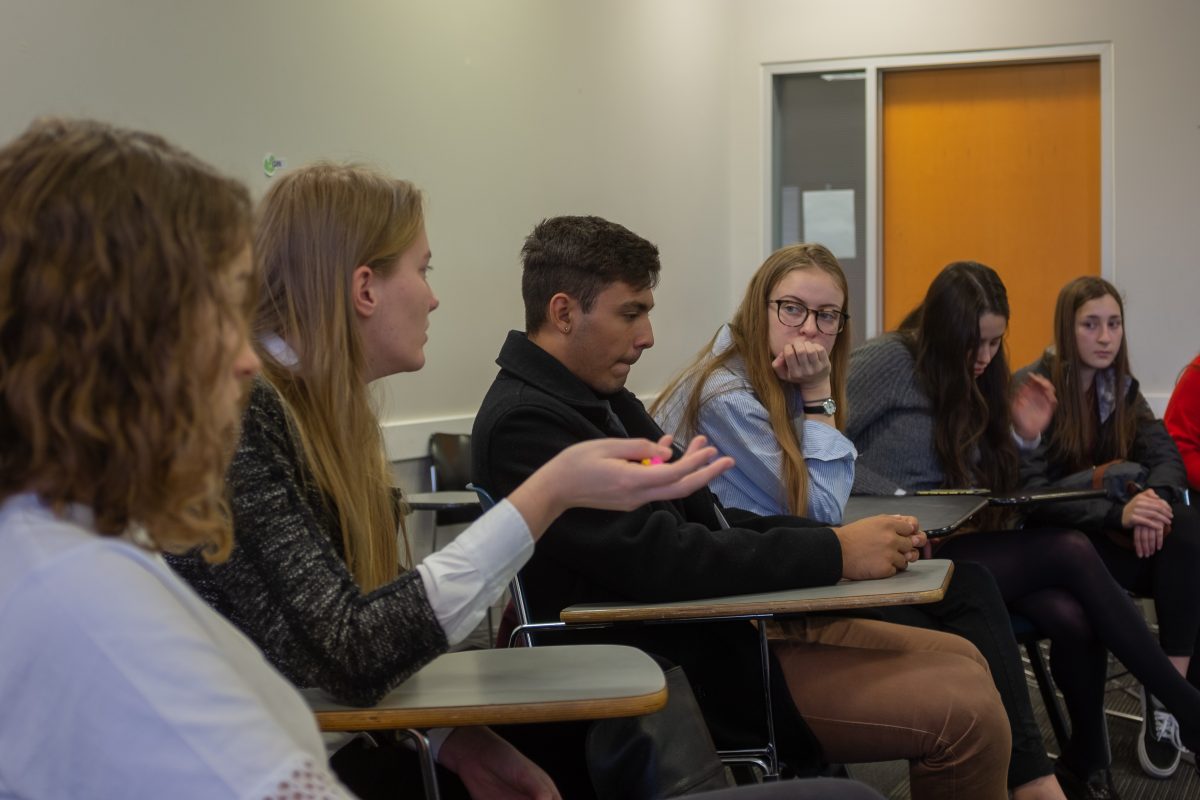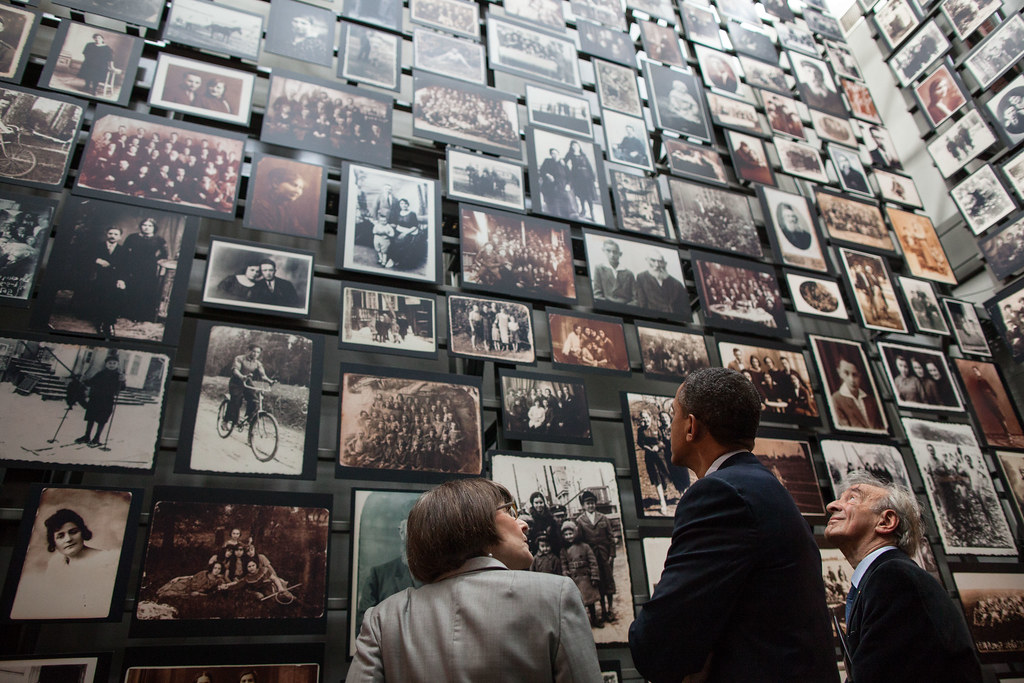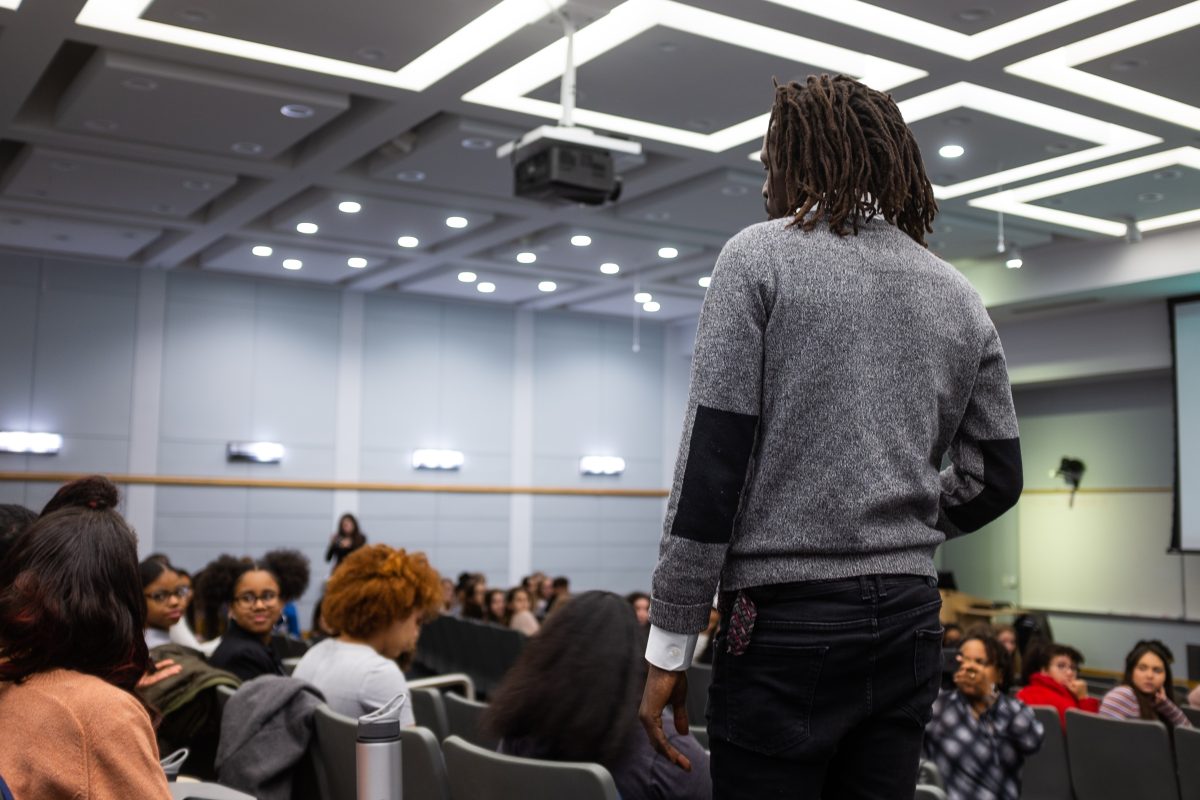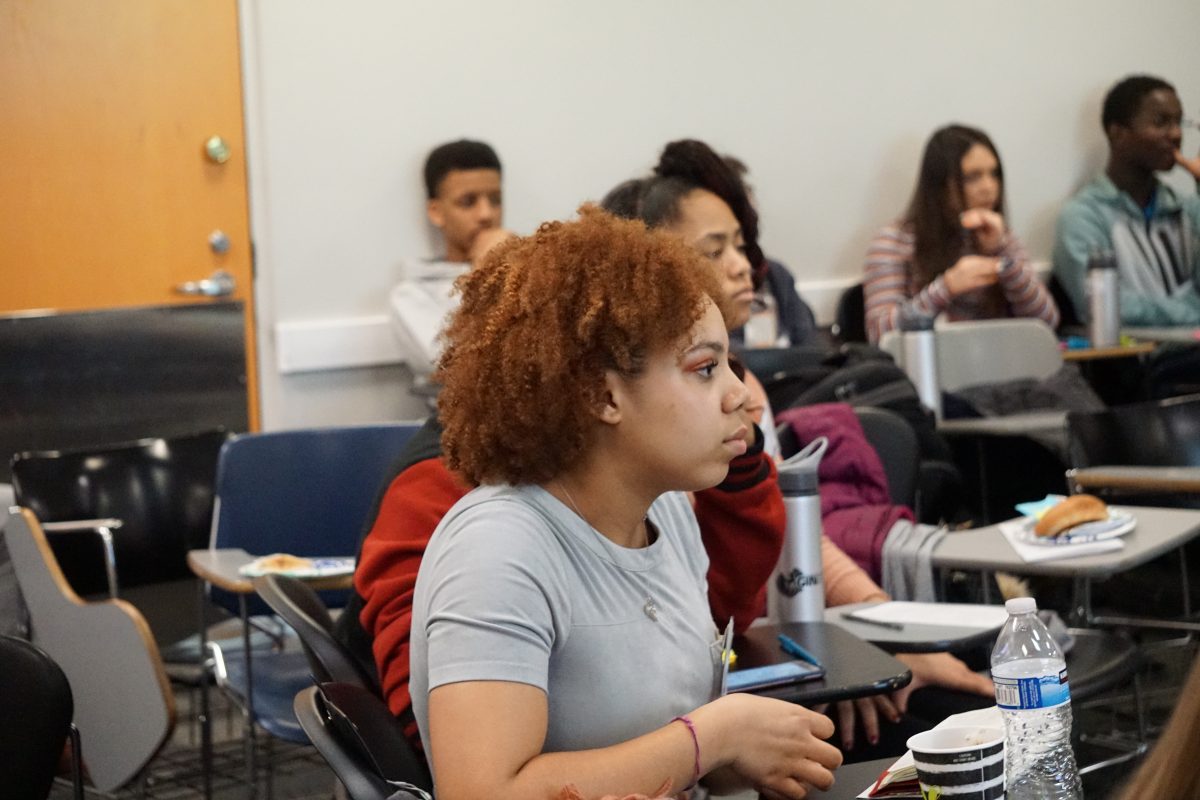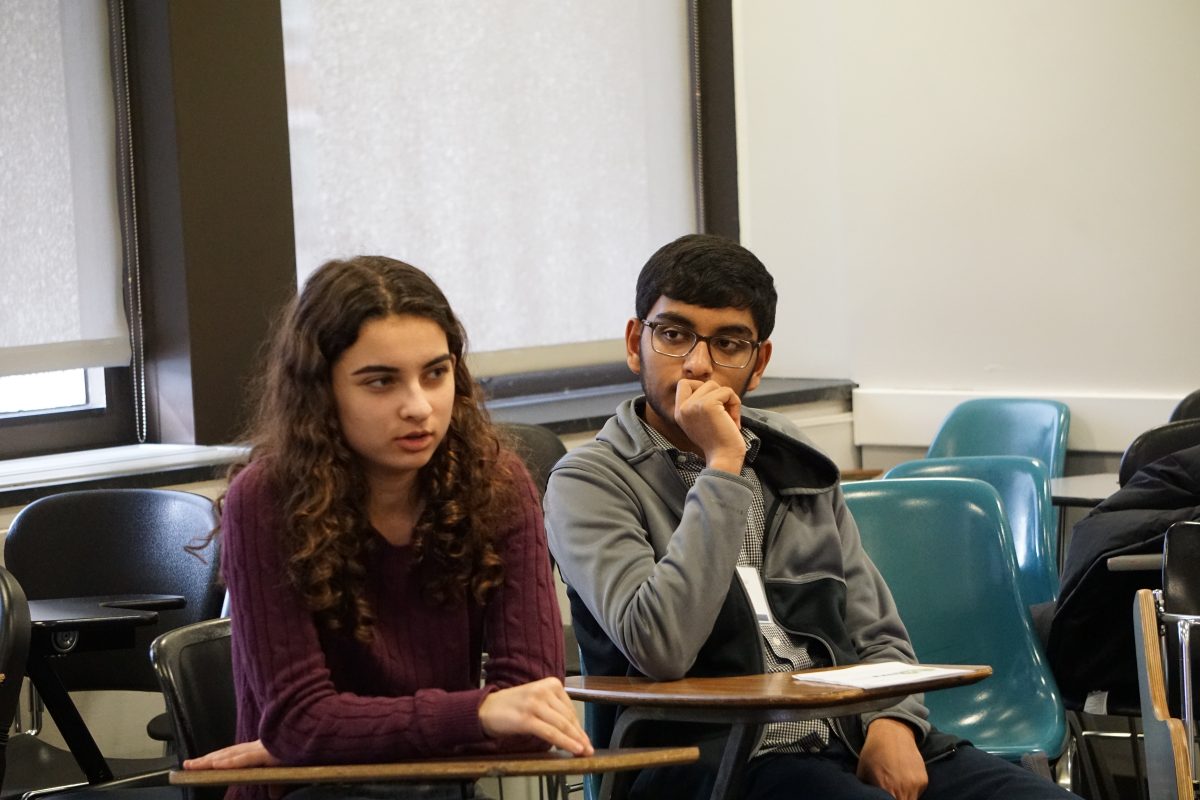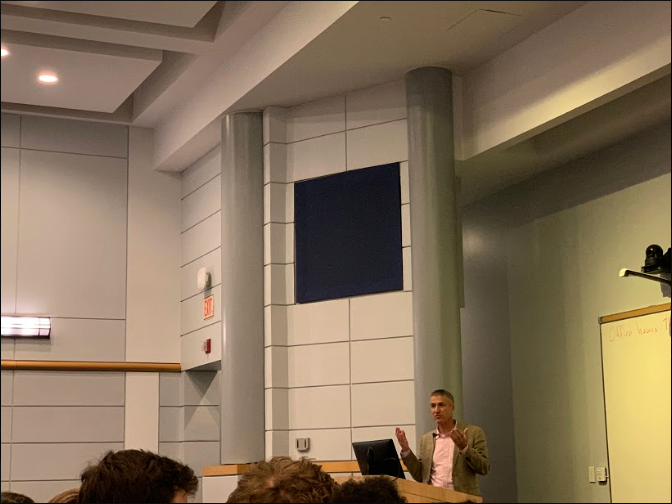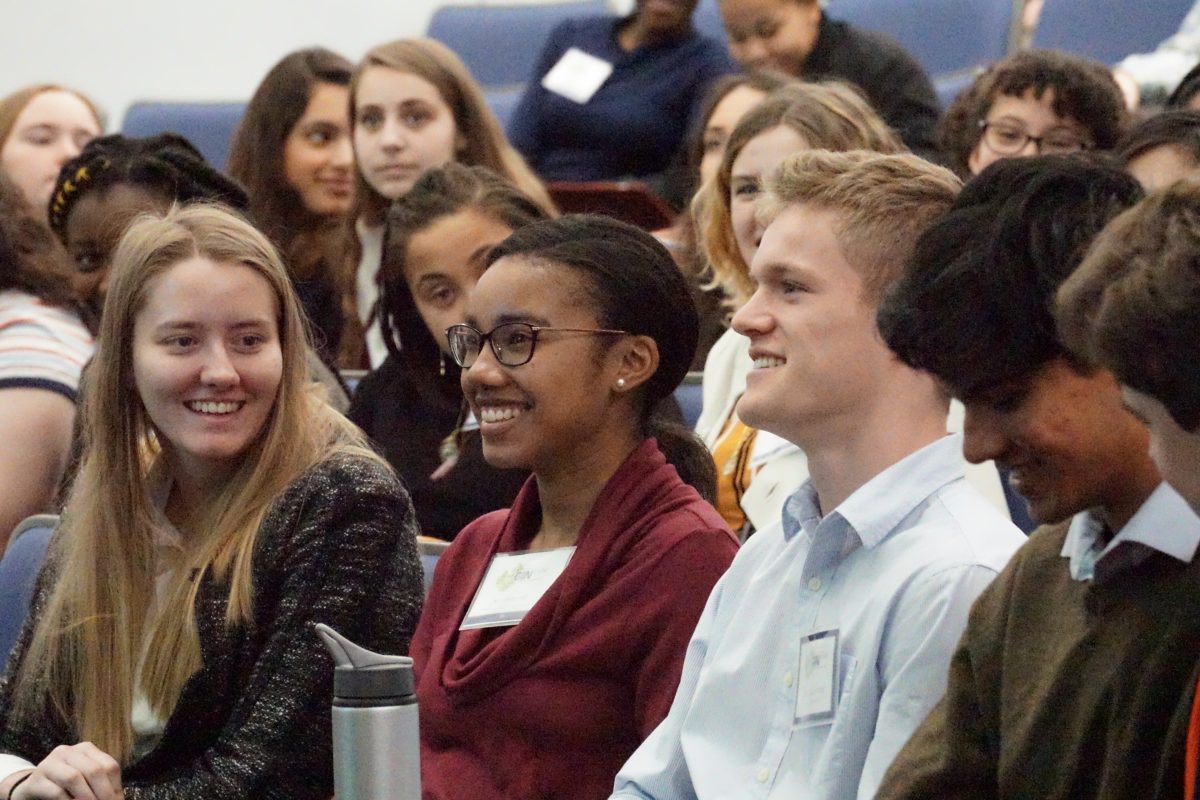Students from all around the D.C. area gathered at The George Washington University on March 11th for the WIS and School Without Walls-organized Global Issues Network (GIN) conference, a time for students to immerse themselves in the issues plaguing the world.
“Overall, GIN was really interesting,” WIS senior Alex Grossman said. “I’ve gotten to be with my friends and meet some new people.”
Over 100 teenagers packed into the first four rows of a largely empty Funger Hall in the morning, waiting for the fifth annual conference to begin. The jam-packed day was a mix of workshops, keynote speeches, and group discussions all related to the conference’s theme: “How do we understand conflict?”

The first person to take the stage was GIN organizer and WIS junior Dorothy Nelson, who introduced the first keynote speaker of the day: Emmanuel Jal, a former child soldier from South Sudan, who is now a recording artist and peace ambassador. Jal emerged from the back of the large lecture room and walked to the stage, rapping his song We Want Peace.
Jal gave a presentation that combined audience activities with anecdotes about his arduous childhood and his path to celebrity in North America. The audience was engaged, but the fact that it was a Monday morning took away some of the energy.
“The speaker’s energy depends on the energy of the audience,” Jal said in an interview after his speech. “Everybody [at GIN] was very laid back and focused.”
After Jal’s final words, participants crowded into elevators to head up to classrooms on the second floor of the business school for workshops about various issues. Topics included the ethics of journalism in conflict zones and the Syrian refugee crisis.

The journalism in conflict zones workshop, led by freshmen Rose Boehm and Rebeka Tatham, consisted of a debate about whether or not it is ethical for a journalist to save a wounded person.
“If you’re put in a situation where you get to decide whether a person lives or dies, it’s wrong to choose death,” one student said. “Sometimes that story saves more lives than you can at the moment,” responded WIS senior Luke Courtney. Overall, it was a passionate discussion.
The final event of the morning was another workshop. “Issues Around Blackface” was the workshop that generated the most buzz. Over thirty students packed into a small classroom, eager to discuss the topic. There was a large general conversation about the topic, where many students got an opportunity to give their viewpoint on the issue.
Students then returned to the first floor for a lunch consisting of an array of Subway sandwiches to refuel for the afternoon.
After lunch, the conference met again in the auditorium for an activity to start the afternoon. Students had to put post-its on the wall answering questions such as “What questions do you have after the morning?” or “What bothers you about conflict?”

Answers ranged from “conflict is unavoidable” to “conflict can easily be stopped.” Then, conference attendees broke into the final workshop of the day. The topics were the same as the first two workshops.
The day wasn’t always full of intellectual discussions about conflict; students got stuck in an elevator not once, but twice.
“It wasn’t very scary,” said senior and GIN organizer Oriane Bui, who was one of the students who got stuck. “We managed to get out after 10 minutes or so.”
After the third workshop, it was time for “Global Villages,” a place to discuss everyone’s learnings from the day. By then, most students were tired, so the Global Villages were more of a time to relax.
Finally, the day culminated with keynote speaker Michael Phillips, a Wall Street Journal journalist who covers conflict zones. He projected a slideshow of his photos from his time in war zones and described his interpretations of conflict to a mildly engaged audience.
“When you’re covering war, you feel like you’re part of history,” Phillips projected across the large room. “It’s kind of an addiction for me.”
As Phillips finished up, students slowly exited Funger Hall and finished up a long, tiring day.
“There’s always someone who has it worse than you,” Grossman said. “That’s my main takeaway from GIN this year.”
By Saul Pink

































































